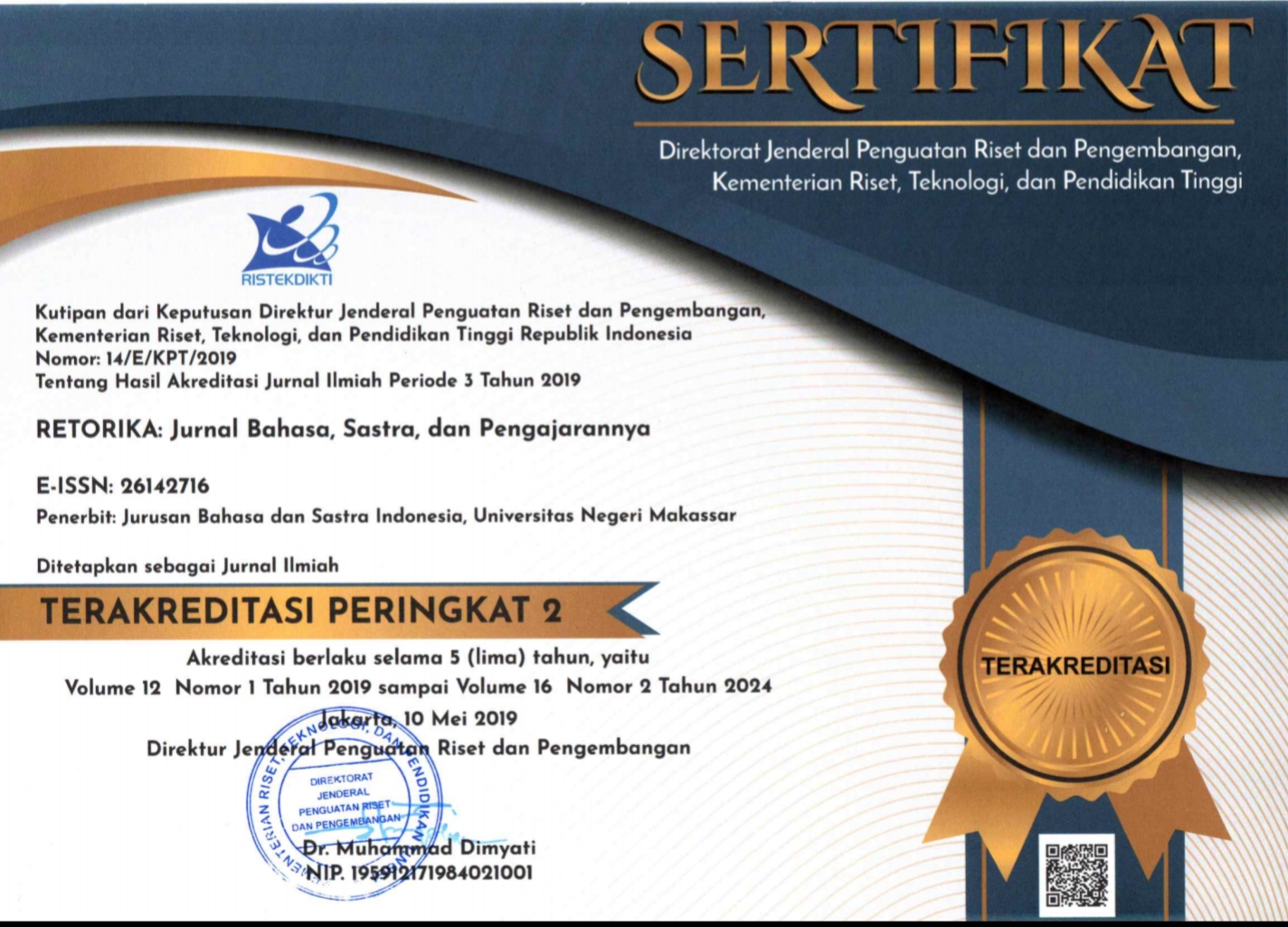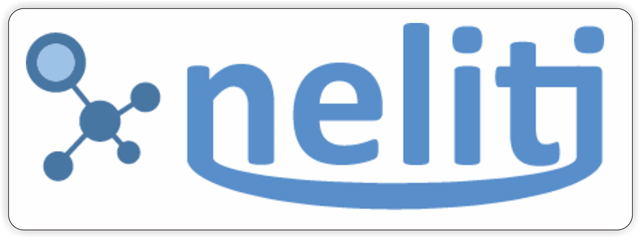ENHANCEMENT LEARNING AKSI PLATFORM READING LITERACY OF ELEMENTARY STUDENTS
(1) Universitas Negeri Makassar
(2) Universitas Negeri Makassar
(3) Universitas Negeri Makassar
(*) Corresponding Author
DOI: https://doi.org/10.26858/retorika.v16i1.43499
Abstract
Keywords
Full Text:
PDFReferences
Bahari, A. (2022). Teacher identity in technology-assisted language learning: Challenges and affordances. E-Learning and Digital Media, 19(4), 396–420.
Cannon, M. (2018). Media-Making: Researching, Teaching & Learning. Digital Media in Education, 1–19.
Falconer, I., Finlay, J., & Fincher, S. (2011). Representing practice: practice models, patterns, bundles …. Learning, Media and Technology, 36(2), 101–127.
Gedik, O., & Akyol, H. (2022). Reading Difficulty and Development of Fluent Reading Skills: An Action Research. International Journal of Progressive Education, 18, 2022.
Gergen, K. J. (2015). The quantitative/qualitative distinction: Blessed are the impure. Qualitative Psychology, 2(2), 210–213.
Kaltsum, H. U., Habiby, W. N., & Razali, A. B. (2021). Visual Analysis of Local Content in English Elementary Textbook in Surakarta Indonesia: A Focus on Cultural Local Content. Asian Journal of University Education, 17(4), 378–387.
Kirkwood, A. (2012). Themed section: Enhancing learning and teaching in technology-poor contexts. Learning, Media and Technology, 37(4), 395–397.
Kurt, S. (2013). Creating technology-enriched classrooms: implementational challenges in Turkish education. Learning, Media and Technology, 39(1), 90–106. https://doi.org/10.1080/17439884.2013.776077.
Law, A. S., & Stock, R. (2017). Learning approach and its relationship to type of media use and frequency of media-multitasking. Active Learning in Higher Education, 20(2), 127–138. https://doi.org/10.1177/1469787417735612.
Nurdin, N. (2017). To research online or not to research online: Using internet-based research in Islamic Studies context. Indonesian Journal of Islam and Muslim Societies, 7(1), 31–54. https://doi.org/10.18326/IJIMS.V7I1.31-54.
Pieterse, H., Olivier, M., & van Heerden, R. (2018). Smartphone data evaluation model: Identifying authentic smartphone data. Digital Investigation, 24, 11–24.
Tangkakarn, B., & Gampper, C. (2020). The effects of reading-while-listening and listening-before-reading-while-listening on listening and vocabulary. International Journal of Instruction, 13(3), 789–804. https://doi.org/10.29333/IJI.2020.13353A.
Yang, Y.-H., & Tseng, W.-T. (2021). Text Difficulty in Extensive Readin: Reading Comprehension and Reading Motivation. 33(1). http://nflrc.hawaii.edu/rfl.
Young, C., Lagrone, S., & McCauley, J. (2020). Read like me: An intervention for struggling readers. Education Sciences, 10(3). https://doi.org/10.3390/educsci10030057.
Yus, F. (2021). Towards online–offline congruence. Smartphone Communication, 231–269. https://doi.org/10.4324/9781003200574-16.
Article Metrics
Abstract view : 161 times | PDF view : 62 timesRefbacks
- There are currently no refbacks.
Copyright (c) 2023 Muhammad Faisal, Latri Aras, Winda Tri Astuti Rahman, Ramlan Mahmud

This work is licensed under a Creative Commons Attribution-NonCommercial 4.0 International License.
Published by:
Department of Indonesian Language, Faculty of Languages and Literature, Universitas Negeri Makassar in cooperate with Asosiasi Dosen Bahasa dan Sastra Indonesia (ADOBSI) and Ikatan Program Studi Pendidikan Bahasa dan Sastra Indonesia (IKAPROBSI).
Address: Department of Indonesian Language Office, DG Building Second Floor, UNM Parangtambung, Daeng Tata Raya Street, Makassar, South Sulawesi, Indonesia
 Email: retorika@unm.ac.id
Email: retorika@unm.ac.id

RETORIKA: Jurnal Bahasa, Sastra,dan Pengajarannya is licensed under a Creative Commons Attribution-NonCommercial 4.0 International License.
















